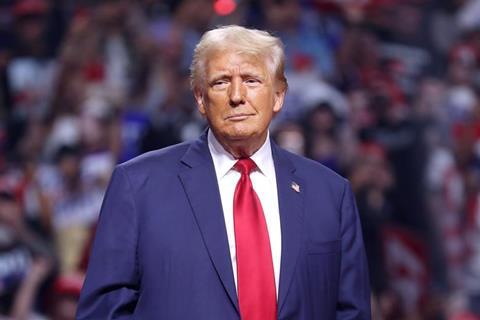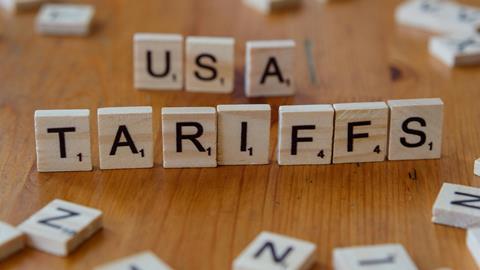Jeremy Roberts, head of TV & film at London legal firm Sheridans, on the indirect consequences of US action
Until recently, most of us probably had only a cursory understanding of tariffs. We might have been able to define them as taxes imposed by one country on goods or services imported from another, but that was about the extent of it.
In the last few days, we’ve had to confront the horrifying reality that this might be the limit of President Trump’s understanding of tariffs too. No one seems to be able to explain his grand plan, or even how the tariffs were set. The Economist called the formula almost as random as taxing you based on the number of vowels in your name. But they are already causing real damage, and I have been asked many times what they mean for the business of television.

The short answer - the one that we probably all know by now - is that television is not directly affected, as it is a service, and Trump’s tariffs only apply to goods. However, the longer answer is that the TV industry is still likely to be hit hard by the indirect impact of the tariffs, if they stay in place.
Firstly, there is a very real risk they could cause a global recession. In a recession, advertising budgets are among the first things to be cut, which hits media companies that rely on ad revenues and leads to a drop in commissioners’ budgets.
Secondly, economic uncertainty reduces consumer confidence. When consumer confidence drops, discretionary spending – on things like cinema tickets and streaming subscriptions – tends to be tightened. This is especially bad news for second and third-tier streaming services, which will be the first to get cut.
Thirdly, the tariffs could cause significant swings in foreign exchange rates, which can have profound effects. For example, since 2016, the weaker pound against the dollar has been a boon for the UK, making the cost of buying UK content for US buyers fall by around 20% on average - an impact on the same scale as the UK tax credit. If the pound strengthens against the dollar, UK production will become more expensive for US buyers, and orders for UK shows from US buyers will decrease.
“While the direct impact of tariffs on the television industry might be minimal, the indirect effects could be profound and far-reaching - the industry must brace itself, yet again”
These indirect consequences of the tariffs - if they materialise - will likely hit scripted production hardest. Scripted content is the most expensive to produce and the easiest to cut back on. In contrast, TV sports are much better protected due to their fixed multi-year deals, making them less susceptible to sudden budget cuts.
Furthermore, Trump’s protectionist ideology may extend beyond tariffs. He might, for instance, insist that the UK or the European Union drop local content quotas for channels and streamers as part of any trade deal. Additionally, he could pressure US media companies to relocate their production back to the US, or incentivise them to do so by introducing a federal tax credit for US productions.
The situation is so dynamic, and Trump so unpredictable, that it is almost impossible to forecast what will happen next. There is a real chance that Trump is using tariffs as leverage in his dealings with countries and companies, essentially saying: “Give me what I want, and I’ll drop the tariff.”

There’s also a significant possibility that pressure from Wall Street will force him into a reversal. But we just don’t know, and in uncertain times people tend to become more risk-averse, including those in commissioning.
Consequently, some of the unfortunate casualties in the short term may be the kind of innovative dramas and experimental series that push the boundaries of storytelling and entertainment. These shows often rely on bold commissioning decisions and substantial investment, both of which are likely to be in short supply during periods of economic uncertainty.
To conclude, while the direct impact of tariffs on the television industry might be minimal, the indirect effects could be profound and far-reaching. The industry must brace itself, yet again, for potential challenges and adapt to a rapidly changing economic landscape.
However, with a bit of resilience and a lot of creativity, there’s no doubt that we’ll get through it. And, in the meantime, we can take some small comfort from moments like the chief exec of Fox-on-steroids channel, Newsmax, ringing the bell at the New York Stock Exchange the morning after Trump announced the tariffs, only to see his own Newsmax shares immediately plummet by 20%.
It’s a reminder that, especially in Trump-world, karma has a sense of humour and usually has the last laugh.
Jeremy Roberts is the head of the film and television team at Sheridans Solicitors LLP.








No comments yet